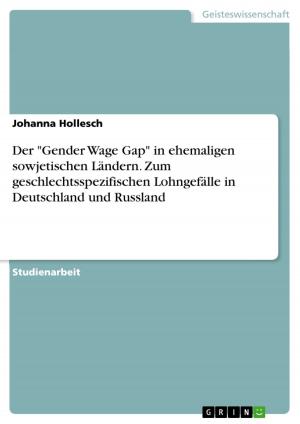The social market economy in the age of globalization - problems and perspectives
problems and perspectives
Nonfiction, Social & Cultural Studies, Political Science, Politics, Economic Policy| Author: | Jan Lukas Nienhaus | ISBN: | 9783638054263 |
| Publisher: | GRIN Verlag | Publication: | May 28, 2008 |
| Imprint: | GRIN Verlag | Language: | English |
| Author: | Jan Lukas Nienhaus |
| ISBN: | 9783638054263 |
| Publisher: | GRIN Verlag |
| Publication: | May 28, 2008 |
| Imprint: | GRIN Verlag |
| Language: | English |
Bachelor Thesis from the year 2008 in the subject Business economics - Economic Policy, grade: 1,8, European Business School - International University Schloß Reichartshausen Oestrich-Winkel, 55 entries in the bibliography, language: English, abstract: The Federal Republic of Germany is a democratic and social federal state (Art. 20). In 1948, the Social Market Economy was introduced in Germany by Ludwig Erhard as the economic system. Since then, Germany has been acting under this guiding principle and found a legal affirmation of the concept in 1990 as it fixed the Social Market Economy as the basis for the economic union of the Federal Republic and Democratic Republic of Germany ('Grundlage der Wirtschaftsunion ist die Soziale Marktwirtschaft', Art 1-3). In times of economic growth and prosperity, the Social Market Economy seemed to work well and further expansion of the social system did not cause any serious problems, but soon the circumstances changed. Important driving factors and trends like the reunification, the demographic development and the globalization have altered the conditions for successful economic policy. In the last decade, excessive national debts and high unemployment rates have revealed a serious crisis and initiated a strong debate whether the Social Market Economy is still able to adapt to and master the challenges in the age of globalization.
Bachelor Thesis from the year 2008 in the subject Business economics - Economic Policy, grade: 1,8, European Business School - International University Schloß Reichartshausen Oestrich-Winkel, 55 entries in the bibliography, language: English, abstract: The Federal Republic of Germany is a democratic and social federal state (Art. 20). In 1948, the Social Market Economy was introduced in Germany by Ludwig Erhard as the economic system. Since then, Germany has been acting under this guiding principle and found a legal affirmation of the concept in 1990 as it fixed the Social Market Economy as the basis for the economic union of the Federal Republic and Democratic Republic of Germany ('Grundlage der Wirtschaftsunion ist die Soziale Marktwirtschaft', Art 1-3). In times of economic growth and prosperity, the Social Market Economy seemed to work well and further expansion of the social system did not cause any serious problems, but soon the circumstances changed. Important driving factors and trends like the reunification, the demographic development and the globalization have altered the conditions for successful economic policy. In the last decade, excessive national debts and high unemployment rates have revealed a serious crisis and initiated a strong debate whether the Social Market Economy is still able to adapt to and master the challenges in the age of globalization.















